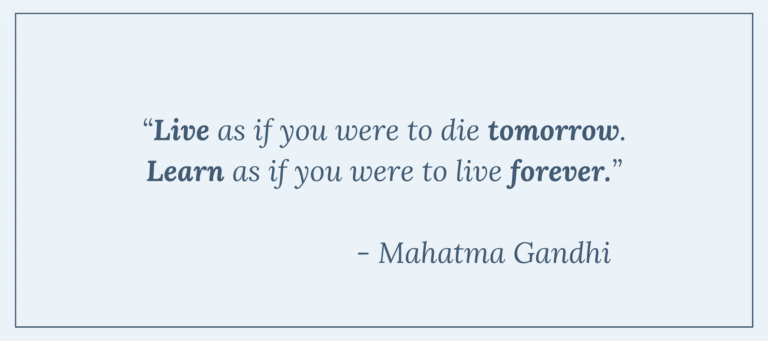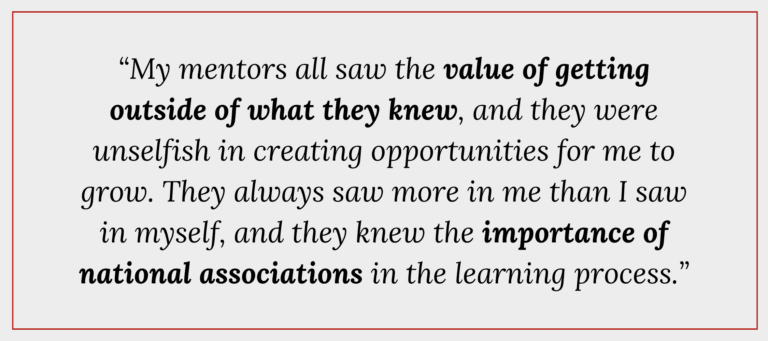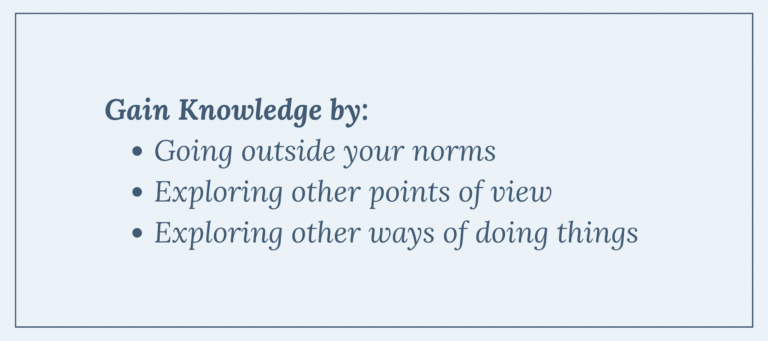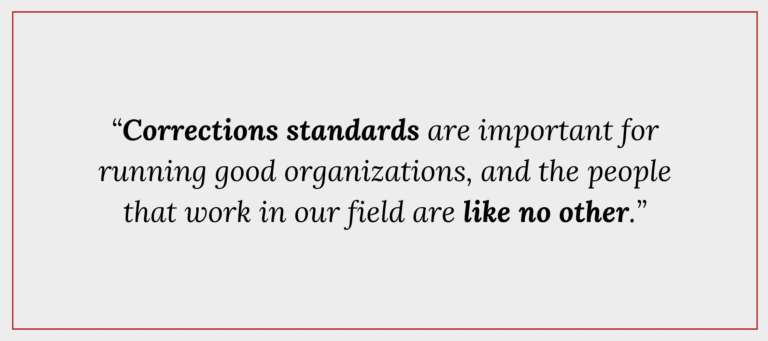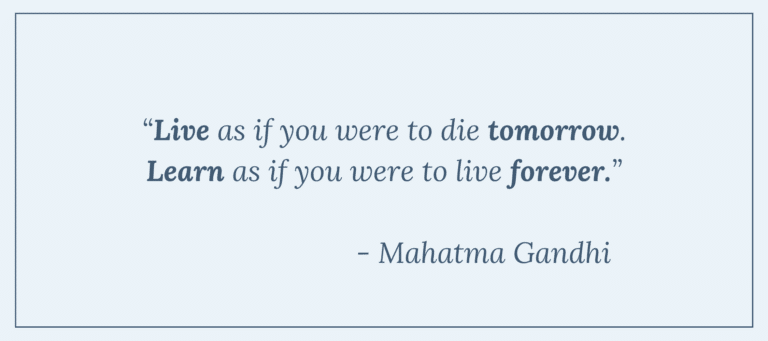
If You Are Not Learning, You Must Be Dead: The Value of Professional Organizations
The minute we come into this world, we learn at a rapid pace. Hopefully, we don’t stop learning until, well, until we are dead. The key to our success throughout life is the ability to learn what we need to survive; to communicate and work with other people; to accomplish things; to make a living; to be a complete and interesting human being; to be a good spouse, father or mother, sister or brother. As long as we are alive and breathing, we must be learning. Living a good, prosocial, and productive life, depends on our ability to learn and adapt positive learning into our everyday lives.
You Are Your Strongest Advocate
One of the most important things you can do for yourself, your staff, your coworkers, and your career, is to take control of your own learning opportunities. There is one strategy that I believe will help you more than anything, and that is to join and participate in as many professional organizations as you can manage.
We don’t know what we don’t know. We can only know what other good ideas are out there for consideration, if we get out there and learn about them. You must leave your jurisdiction, and you must go find the opportunities that will enhance your knowledge.
Top Five Benefits of Joining Professional Organizations and Associations
Professions are supported by the requirement of continuous acquisition of knowledge. We know this is just common sense and there is probably not one person reading this that doesn’t understand the need for continuous learning. Licensing requirements for professionals are based on the need for professionals to keep up with current best and promising practices. In our own field of corrections, all staff working in our facilities need to complete the annual training requirements.
That’s not the problem. The need is well known and acknowledged. What I fear, however, is that many of us have lost sight of the immense benefits that are gained, both professionally and personally, from continuous learning and the role professional organizations and associations play in capitalizing on those benefits. Below, I share what I feel are the top benefits to gain from joining professional organizations and show how each had an immense impact on where I am today in my career:
Benefit #1: Growing your network
Firstly, networking opportunities are abundant, allowing leaders to connect with peers, experts, and potential mentors in the field. These connections can lead to valuable insights, collaborations, and career advancement opportunities.
One of my observations from my many years of being in the field, is those systems that encourage and support staff attending national conferences such as the American Correctional Association, the Association of Women Executives in Corrections, the American Probation and Parole Association, the North American Association of Wardens and Superintendents, the National Institute of Corrections, to name a few, are better run, more advanced, and have “at the ready” a network of support from other professionals across the country.
United States Deputy Warden’s Association, and the Southern States Corrections Association (SSCA). When I asked if my agency would pay for me to go to those conferences, I was approved. I learned a great deal in attending those conferences and meeting people who had the same job responsibilities in other states around the country. I went every year for several years consecutively, and established some good contacts and friends in the field that I still have today. I am still active in the SSCA, and value what that organization has done for me and my career. Later in my career, I was able to support the deputy warden’s conference coming to our state and hosting it. It was my way of supporting our deputy wardens and giving back to the organization that had supported my learning along the way.
I was very lucky to have great mentors in my career. Every one of my mentors, who I give my most sincere thanks to, urged me to grow as a leader. They stretched me beyond what I believed I was capable of and encouraged me to do things that I couldn’t possibly think I could do (like serving as the co-chair with another state for a national conference for women offenders). Another example is when a President-elect of ACA and the Executive Director of ACA asked me to serve as the Congress of Corrections Program Chair. Initially, I tried to refuse the assignment, stating that I was just too busy being a warden to pull this off. And I was, but I also have learned that no matter how busy we are, we can manage more than we initially think we can. I am so grateful for them pushing me,as everything I learned was invaluable. They pushed me into things that would help me realize a vision that they had for me, and I had yet to see for myself.
Benefit #2: Staying updated on industry trends, best practices, and legislative changes
This is crucial in the ever-evolving field of criminal justice. Professional organizations often provide access to exclusive resources, such as research studies and industry reports, training, and conferences that can help leaders stay informed and agile in their roles.
When we “come up” in one correctional system like most of us do in our profession, and dedicate our lives to one system, it is all we ever know. Within our systems it is only natural that we get very comfortable with how we have always done things. Other places may do those same things differently, more effectively, and more efficiently than our system does, but how would we know that? As leaders, we have the responsibility to not only keep learning, but to bring those practices into our operations to better our organizations. We can put ourselves into the position of gaining that knowledge by belonging to and participating in professional organizations. We must make a conscious effort to go outside our norms, and explore other points of view, other ways of doing things.
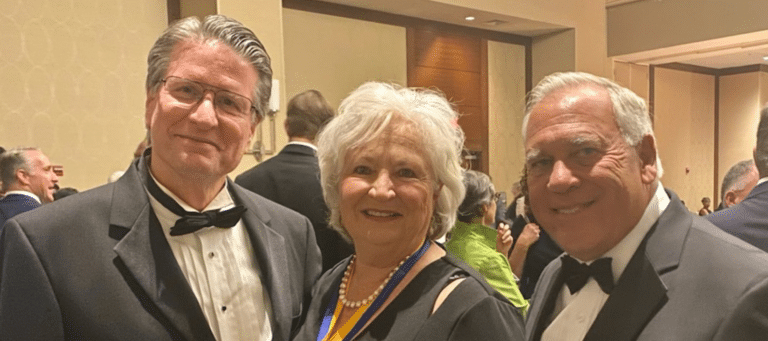
Mary Livers accepting the E.R. Cass Correctional Achievement Award at the American Correctional Association 2023 Awards Reception.
Benefit #3: Enhance your credibility and recognition within the industry
Membership demonstrates a commitment to ongoing professional development and adherence to high standards of practice, which can be beneficial for career progression and reputation. Additionally, these organizations often offer leadership development programs, workshops, and certifications that can further hone leadership skills and enhance job performance. Some associations offer leadership opportunitiessuch as serving on committees or boards, which can further develop leaders’ management skills and provide a platform for contributing to the field’s advancement.
Eventually, I ran for office with ACA, and to my real surprise, I was elected President-Elect. Not in my wildest dreams did I think that the trajectory in my career would lead me to being the President of the largest and most influential professional association in the country or the world for that matter. I was overwhelmed with a sense of responsibility and gratitude as I embarked on this great honor.
While I was surprised by the gradual ascent into larger, more responsible roles in ACA, what I am not surprised at as I look back on my career, is how important mentors are in developing leaders. They pushed me to grow professionally, and they pushed me to be involved on a larger level as part of regional and national organizations.
Benefit #4: Amplify your voice and be a part of the change
Advocacy and lobbying efforts by professional organizations can influence policy decisions, promote justice reform, and address critical issues facing the criminal justice system. By joining forces with like-minded professionals, leaders can amplify their voices and make a meaningful impact on the field.
Once I was recognized with taking on some leadership roles in ACA, I was encouraged to take on more and more voluntary assignments. Yes, we know the extracurricular work we do is all voluntary. It’s a simple formula, however: the more you give, the more you get out of it. As I took all of these opportunities seriously, I ended up getting more out of it than I even realized. Participating in committees that were of interest to me meant that I was eventually nominated to serve on the Board of Governors for the Association. I kept working, volunteering, and happily served on several committees. One committee that was really a growth experience was chairing the Resolutions and Policies Committee. That experience was initially excruciating, as I did not have a larger view of corrections at the time. But I grew from the experience as it opened my eyes to another larger world of corrections and criminal justice policy that was very important and meaningful.
Benefit #5: Gain a new appreciation for the justice community and your role in it
Immersing yourself in these opportunities can deepen your understanding of the justice system, open your mind to new solutions, and empower you to make a meaningful impact within your professional sphere.
As my career advanced, so did my interest in broader correctional issues. I applied to become an ACA auditor. This was a great experience. Even though I “didn’t have the time to devote to it,” I found the time to do a couple of audits a year. These were great learning opportunities as I never walked away from an audit that I didn’t leave with some good idea that I could bring back to better our operations. We had many auditors in our system at the time and so those ideas multiplied as our staff conducted audits around the country. Think of all the innovations that we brought back that helped us improve our system.
In addition, these audits served as a source of pride for me when I realized what great people work in corrections and how lucky we are to be in this field. Going on ACA audits reaffirmed what I already knew: corrections standards are important for running good organizations, and the people that work in our field are like no other
So, “What Does This Have to Do with You?”
Well, I think everything. As leaders, we have a responsibility to develop a culture of learning, of trying new things for the betterment of meeting our mission. You can start by choosing an organization that meets your needs.
I encourage each of you to request the ability to participate in national organizations. Even when budgets are tight, even when you were told last year that it wasn’t going to happen, and even when no one else in the agency is participating in the national organizations. It just might be the right timing or the right set of circumstances that will change the answer to a “yes.”

